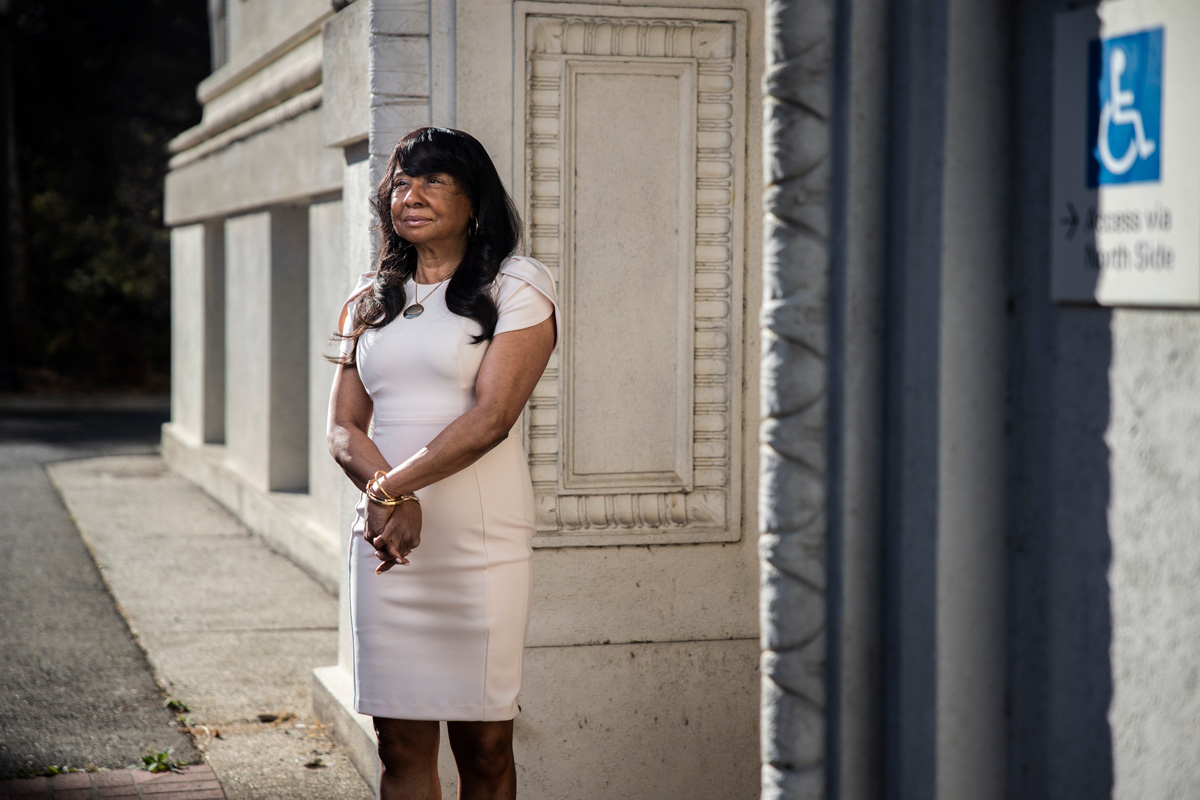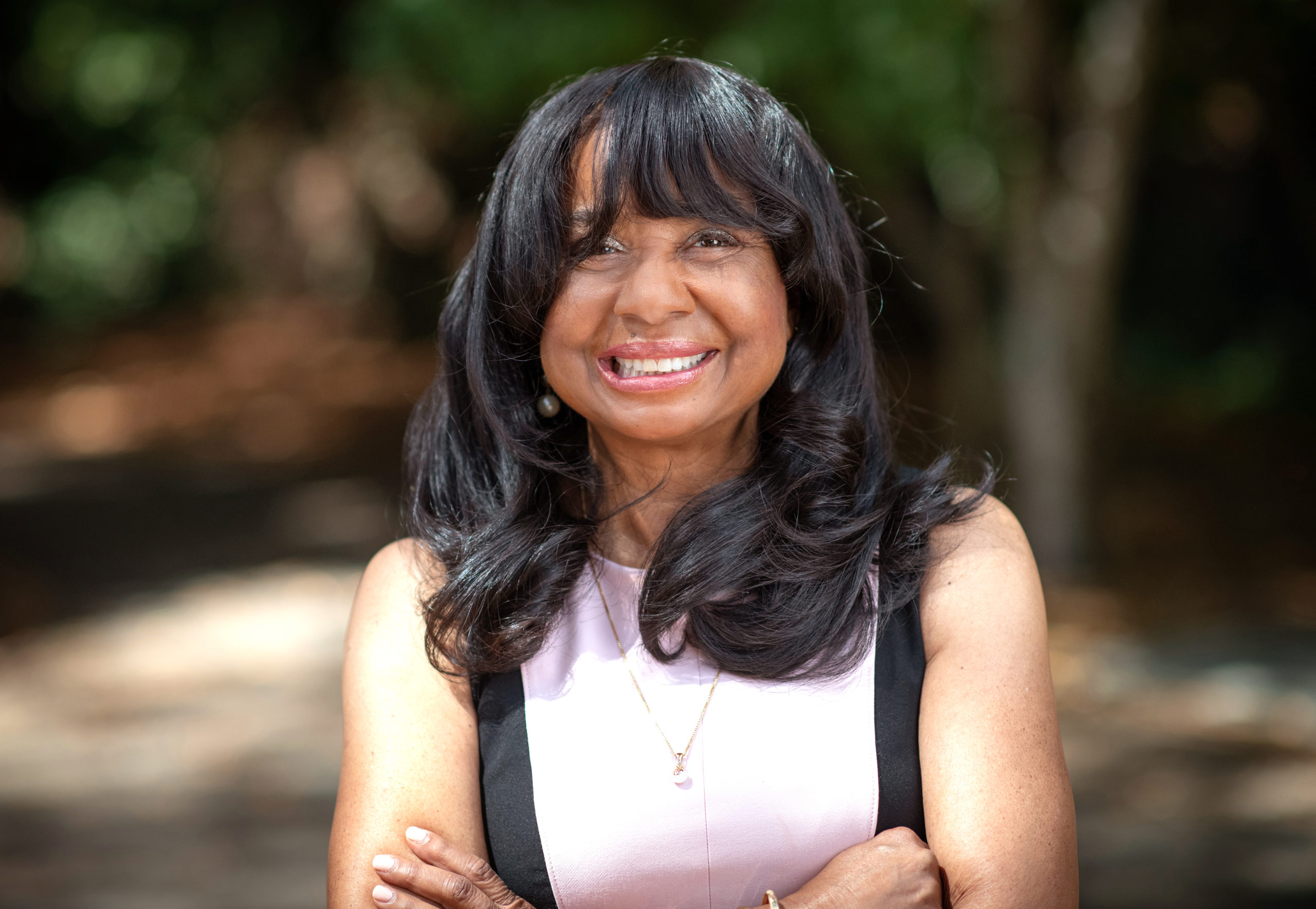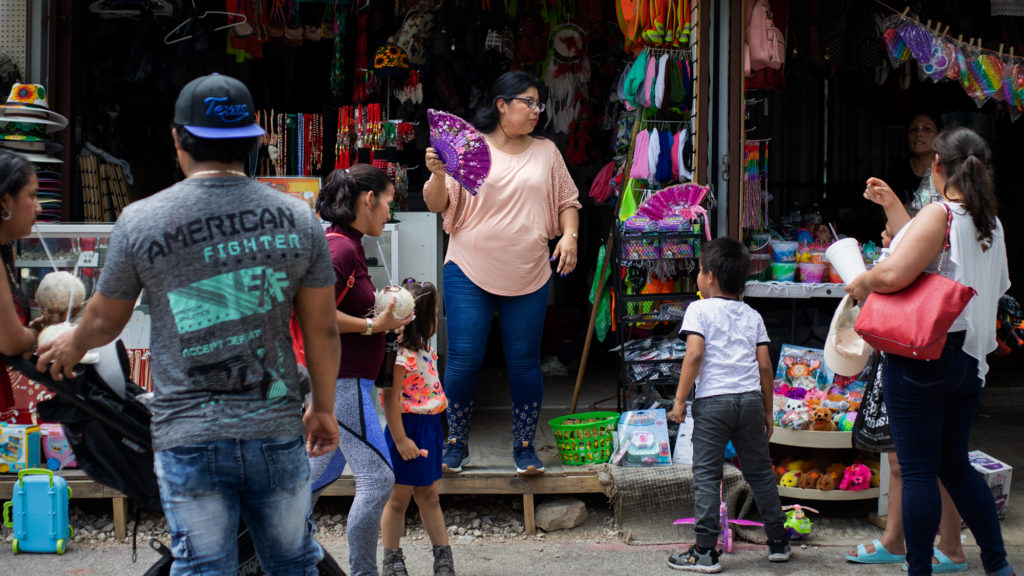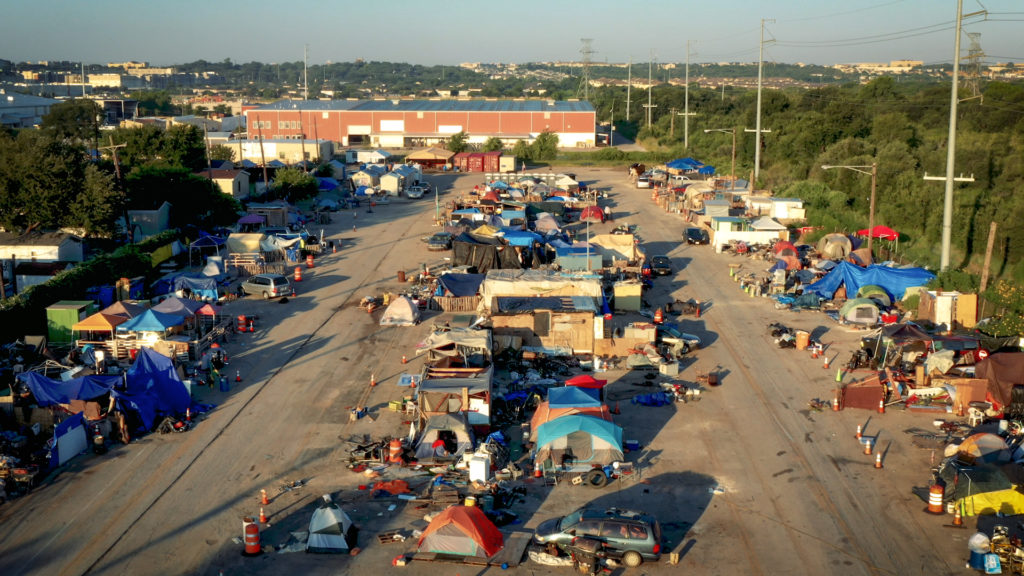As Dean of the School of Social Welfare at the University of California Berkeley, Linda Burton is leading an effort to increase the number of men of color in the school’s Master’s in Social Welfare program and throughout the field.
One of the things I remember noticing from when I was a child growing up in Compton, California, was that African American boys seemed to keep disappearing.
I grew up during the height of gang warfare in Compton, and as I got older, it felt like there were fewer and fewer African American boys and men in our community. As a young girl, I remember thinking, Where are they going? To a large extent, seeking an answer to that question has driven my career as a social scientist for the past 40 years.
When I attended college and graduate school in Los Angeles, I sought to address that question and conducted ethnographic research in South Central Los Angeles and Compton neighborhoods to find answers.
My research allowed me to trace the lives of young African American boys and their families from neighborhoods like mine, and I witnessed what happened to them when they were drawn into the social welfare and criminal justice systems. I continued to explore this question for decades in economically disadvantaged neighborhoods in Boston, Chicago, San Antonio, and rural and small town Pennsylvania and North Carolina.
In doing this work, I continued to notice the absence of men of color, not just in these communities, but also in the ranks of those who surveilled African American boys and directed them into the criminal justice and social welfare systems.
Women, most often White women, were typically filling those roles and directing the cases of African American males, which shaped their lives in ways the social workers didn’t fully grasp. As a consequence, I observed that they often fell short of providing these young males with the guidance and support that was critical to their positive growth and development.
While exact figures are hard to come by, the Council on Social Work Education reports that only 11.9 percent of social work Bachelor’s degree recipients between 2018 and 2019 were men.
Based on the rate at which African Americans graduated with BAs in social work in those same years, we can estimate that only 2 percent of all BA recipients were African American men, while African American males comprise roughly 6 percent of the US population.
If the UC Berkeley Master’s in Social Welfare program is representative of the field more broadly, African American men are entering the field at an even lower rate than this. In 2020, we had only one African American MSW student enter our program, which is comprised of more than 200 students. In 2019, the number was the same. In the two years before that, there were no African American men who enrolled in our program.
Meanwhile, the gap in representation of African American men as social workers is punctuated by the fact that men of color are overrepresented as clients in the field of social welfare.
In the child welfare system, for example, African American children make up 24 percent of young people in foster care while comprising only 13 percent of the child population in the country, according to the US Children’s Bureau.
If we look at the penal system, we find that African American men are imprisoned at a rate roughly six times higher than that of White men in the United States.
This fundamental gap in representation of men of color is responsible for a tremendous loss in our ability to best serve this critical population. One obvious way this plays out is that the absence of African American men as social workers deprives social work clients of male role models of the same racial or cultural background.

Linda Burton, Dean of the UC Berkeley School of Social Welfare, is intent on recruiting more men of color into the field of social work and is in the process of launching its Social Welfare, Sports, and Society Initiative to train athletes to work in the field of social welfare. [Photo by Martin do Nascimento]
Affirmative identity development is another critical function that only men of color can truly provide their Black and Brown male clients, and studies have shown that those African American boys who grow into manhood and are most successful all have a strong idea of their individual and cultural identities, and their identities as men. They develop this through watching other Black male leaders and role models.
There’s also a form of accountability that men, particularly men of color, can hold for other men of color and boys that gets lost when we don’t see men of color in the social work field.
Moreover, Black men need to be at the table to inform social policy and social programs. We need their specific knowledge and their voices in the room in order to come to the best decisions about how to tailor our work to make the most difference in people’s lives.
The irony behind the underrepresentation of men of color in our field is that our men are so often magnificent caregivers. So many of them learned naturally to care for younger siblings or other family members. Still, that’s typically not the story we hear on the evening news about men of color.
What’s more, so many men of color are already involved in their communities and practicing social work, albeit without the title of “social worker.” One obvious example of this is found at every level of sports, where coaches guide and care for their players, just as social workers do for their clients.
In recognition of this, our school is in the process of launching its Social Welfare, Sports, and Society Initiative aimed at training athletes to work in the field of social welfare before, during, and after their athletic careers, while also building a platform for improving the representation of men of color in the field as a whole.
Our ultimate goal is to launch an Master’s in Social Wefare program with a focus on the specific areas of overlap between social work and sports — social advocacy, policy development, physical, behavioral, and mental health issues that athletes are confronted with — and to establish the first ever Institute on Sports and Social Welfare in the country.
In the longer term, our school is investing in building a pipeline to bring more men of color into our classrooms. In my experience, it’s most often the case that African American men have never even considered social work as an option for a career path, but when you sit down and talk to them about the things they’re interested in and whether or not social work would be a good fit, it checks all the boxes.
Our goal in building our pipeline is to work with students starting in middle school in order to get them interested in the field. To that end, we’re forming partnerships with organizations like Kingmakers of Oakland, A Hundred Black Men of the Bay Area, and several East Bay public school systems to begin planting that seed and also to ensure that the people who end up coming to our school are prepared for the rigors of the program.
The aim, first and foremost, is to recruit young men from the Bay Area who can build that strength and reinvest in our communities here and throughout California.
Right now, our country has so many difficult and tangled issues we’re facing. How do we address the racial reckoning that has been made so apparent in the wake of the brutal deaths of so many Black men and women? How do we move on from the ongoing economic strain caused by a pandemic that’s hit our communities of color so deeply?
We can all see we have to do something. As social welfare professionals, we have chosen to be the people to do something about it. As Americans, we must all do better to protect our men of color and keep them from disappearing from our communities. For those of us working in social welfare, that means we need to work diligently to recruit more men of color into our field.



